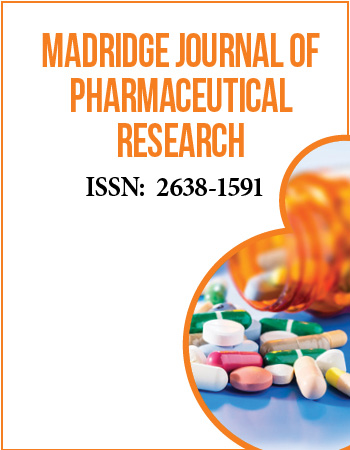International Conference on Medicinal and Pharmaceutical Chemistry
December 5-7, 2016 | Dubai, UAE
Thiazolidinedione derivatives as anticancer agents: Design, synthesis and biological characterization
BharatiVidyapeethʼs College of Pharmacy, India
Thiazolidinediones (TZDs)viz., troglitazone, rosiglitazone and pioglitazone, were explored for their antidiabetic activity are now being unearthed for their anticancer activity. This is evident by the recent reports suggesting that these agents help in eradicating leukemic stem cells in combination with imatinib. However, these known TZDs cause several side effects and these have been attributed to their ability to activate peroxisome proliferative activated receptor γ (PPARγ) receptor. To evade the toxicity we rationally designed and synthesized TZD containing moieties (3a-3y) which would spare PPARγ. Synthesized molecules were screened on various malignant cell lines using SRB assay. Almost all moieties exhibitedGI50 activity on breast (MCF-7), oral (GURAV) and leukemia (K-562) cell lines in the range of 0.5µM- 80µM. Imatinib, a gold standard for chronic myeloid leukemia (CML)has started gaining resistance. Considering the recent reports on known TZDs in CMLpatients and resistance issue, we further continued our work with K562 cell line. Few molecules were found to arrest G0/G1 phase of cell cycle in dose(5 µM, 10 µM, 25 µM and 40 µM) and time dependent manner (at 10 µM and 20 µM). Two leads 3t and 3x were selected and further found to inhibit cyclin D1 and proliferating cell nuclear antigen (PCNA) at 10 µM and 20 µM using immunoblotting assay. The pharmacokinetic studies of these two derivatives were studied and reported. Moieties were further evaluated for in-vivo tumor regression activity alone and in combination with imatinib in nude mice. Molecules substantially reduced the tumor size in combination with imatinib.
Biography:
Hardik Joshi is a Ph D senior research fellow worked on a project funded by Basic Research in Nuclear Sciences (BRNS), India in collaboration with Tata Memoriaʼs Advance Centre for Research and Education in Cancer (ACTREC). Mr. Joshi worked on design, synthesis and biological evaluation of novel thiazolidinediones and its bioisosteres as anticancer agents. He has presented parts of his research work at various international platforms and has published review and research articles in esteemed journals.


